Helene Grøn (Denmark)
Helene Grøn is a Danish writer and theatre researcher, and currently the guest of Tartu UNESCO City of Literature residency programme. She is a postdoctoral researcher at the University of Copenhagen, focusing on literature and theatre in the context of exile and migration. Her creative work explores the connections between place, borders, memory, and landscapes. She has written plays, librettos, and short stories and has participated in various interdisciplinary art projects. Her work written for performance has been produced, e.g. by Scottish Opera, and my facilitation and co-writing work on issues of asylum and migration has been exhibited, e.g. at the Documenta15 Festival and with the VisAvis Magazine. I continue to work on these tracks – publishing of individual works, librettos and collaborative writing and performance projects, community work and academic research.
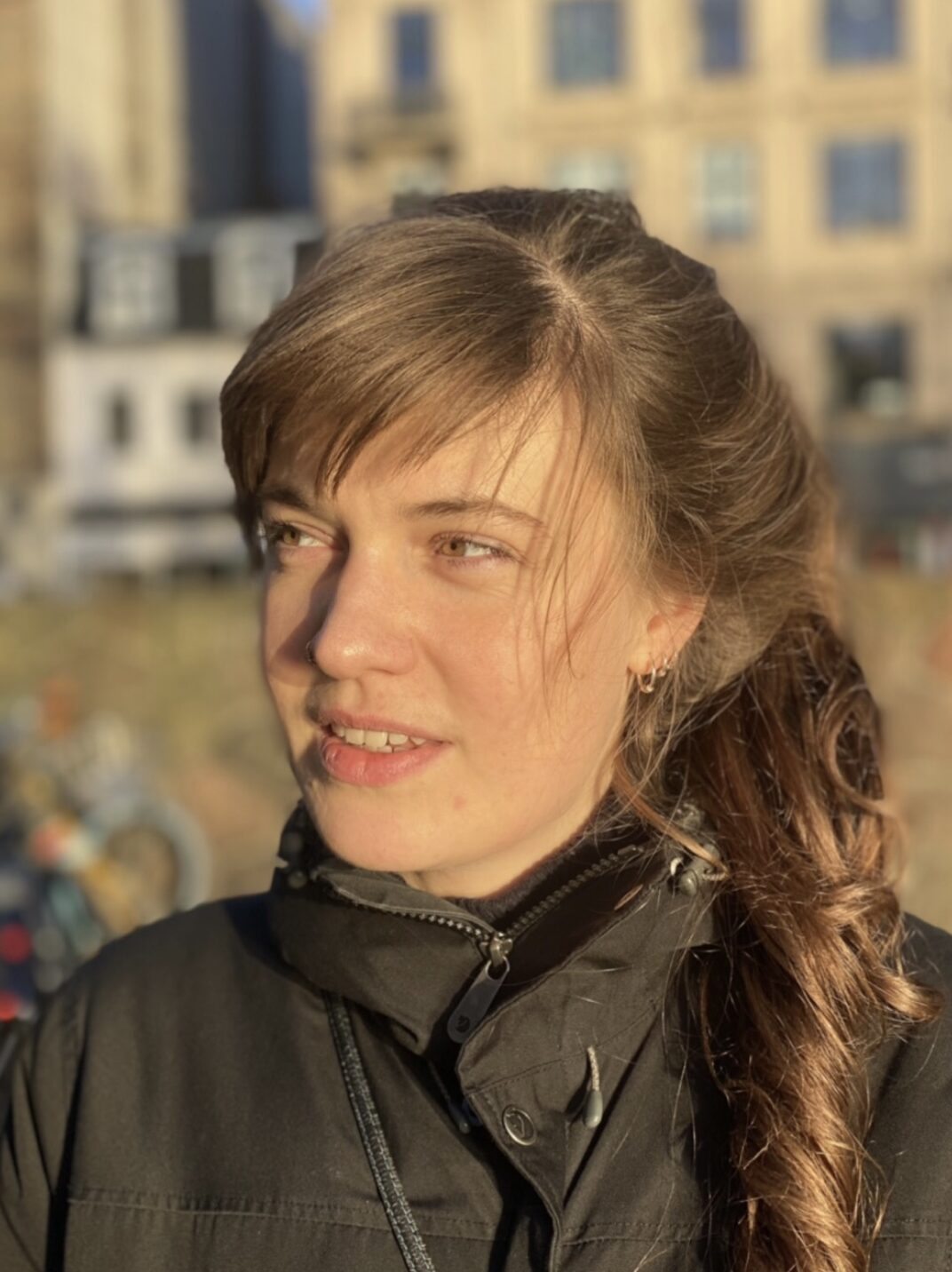
Friday, 9th May
15.00
Workshop and reading with the current writer-in-residence of Tartu City of Literature, Helene Grøn (Denmark)
Kjell Westö (Finland)
Kjell Westö was born in 1961 in Helsinki and made his literary debut in 1986. He became one of Finland’s most prominent authors quite some time ago and is one of the best-known and most highly awarded representatives of Swedish-language literature in the novel genre. Through translations, he enjoys a wide readership in Swedish, Finnish, Estonian, and many other languages. Several of Westö’s novels have been adapted for the stage, screen, or television series.
Westö often depicts his hometown, Helsinki, in different eras and from the perspectives of various social classes. This was already evident in his breakthrough novel “Drakarna över Helsingfors” (1996, “Kites over Helsinki”), the first book in a tetralogy portraying post-war Finland and Helsinki. In contrast, the musician’s novel „Tritonus” (2020) is set in the present day and the countryside.
Westö has portrayed Helsinki in earlier times in novels such as “Där vi en gång gått” (2006, “Where We Once Walked”), which centres on the bloody events of the 1918 civil war, and “Hägring 38” (2013, “The Wednesday Club”), which is set in 1938, with the looming shadows of a war both recently past and soon to erupt hanging over the plot and its protagonists.
Only in his most recent novel, “Skymning 41” (2023, “Dusk 41”), does Westö turn to the Second World War. Although peace had officially been restored in Finland following the Winter War with the Soviet Union at the beginning of 1941, it still felt as though “THE WAR HAD somehow taken up residence in the city” [quote from Part II, Chapter 6 of the novel]. Not long after, a new war begins – the Continuation War.
During these dark months, journalist Henry and actress Molly struggle to maintain their romantic relationship. Through their story, the novel portrays the everyday efforts to rebuild life and look to the future after the devastation of war, while also highlighting the various challenges Henry and Molly face in their professions, especially in a climate where high politics and the brutality of war continue to shape human destinies in countless ways.
Because of its vivid depiction of the era, the novel, published in Estonian in Tõnis Arnover’s translation in 2025 by Eesti Raamat, has become alarmingly relevant even today.
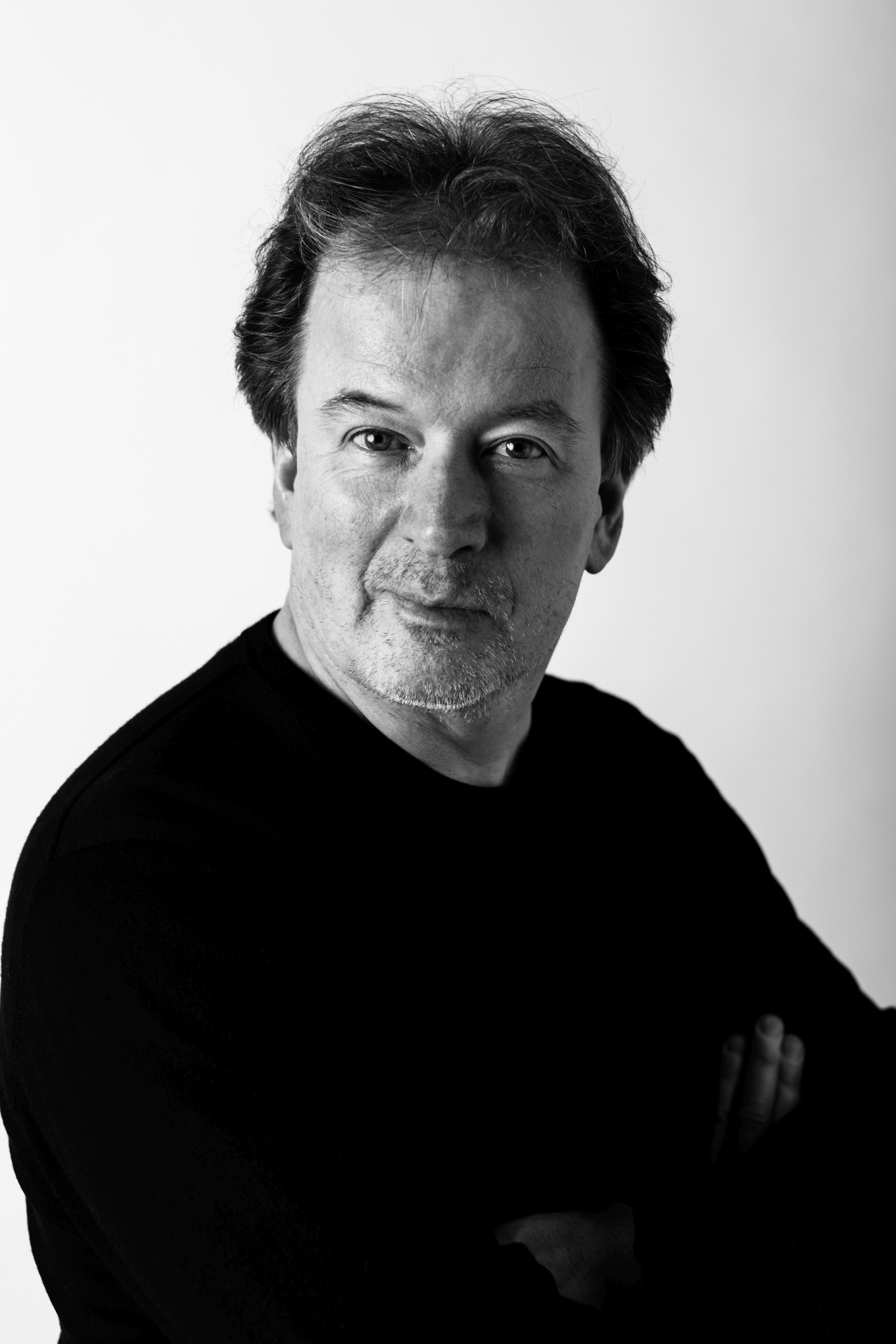
Thursday, 8th May
17.30
An Evening with Finnish Author Kjell Westö
Yuri Miki (Japan)
Tokyo-based spoken word artist/slammer/slammaster.
Yuri Miki is the head of “KOTOBA Slam Japan”, her country’s National Poetry Slam organisation. She’s also the first female national champion and has won this title two years in a row (2017/2018), making her one of the most noted slammers in Japan, Asia.
She started her poetic career as a teenager when she won a newspaper award for her haikus. At the time, she played classic piano, sang in a punk rock band, too. Her works are often for empowerment for Asian women, freedom from sexual repression, a hybrid of classical Japanese elements and punk and avant-garde style. She organised “Ueno Poetrican Jam 5 & 6”, the largest poetry festival in Japan’s history, attracting about 2000 people.
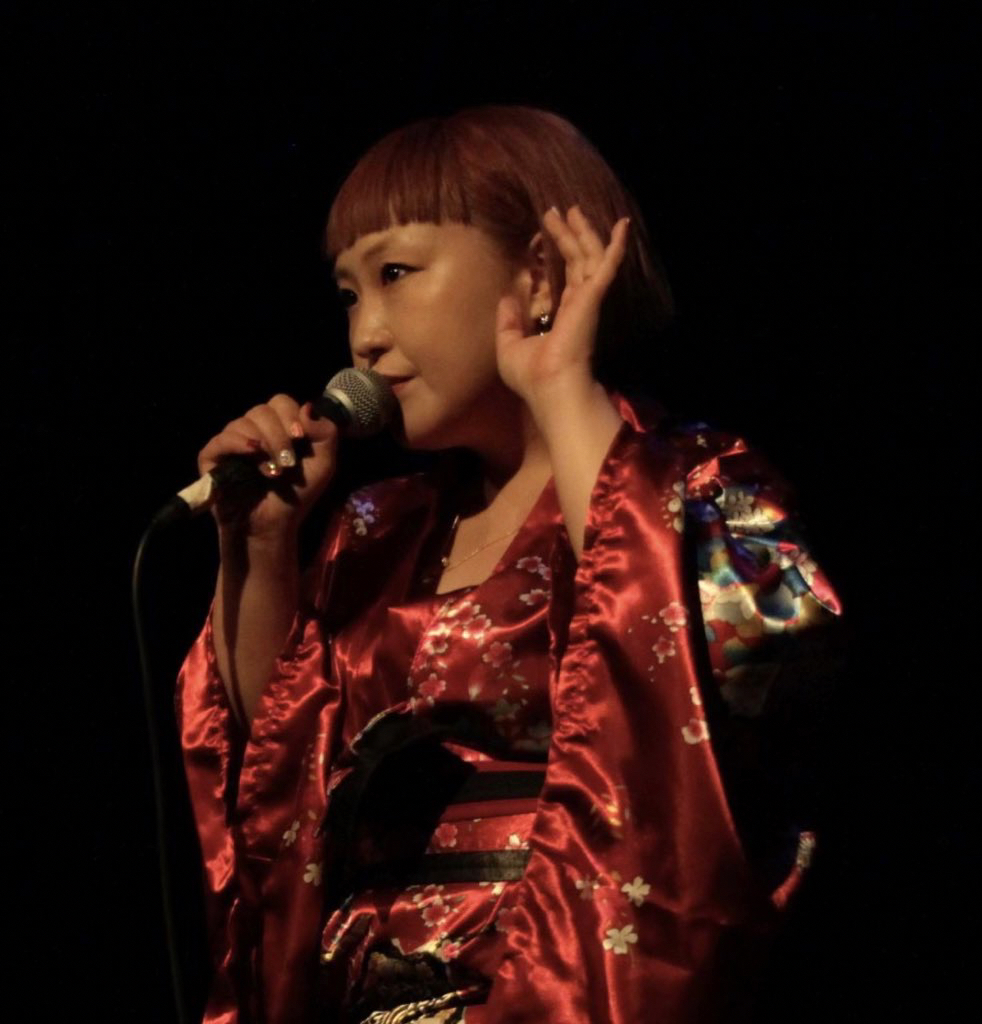
Thursday, 8th May
20.00
TarSlämm Poetry Slam Final at Vilde & Vine, Featuring Guest Performer Yuri Miki (Japan)
ŪGA & “juos īluos līluos” (Latvia)
Hip-hop Artist ŪGA
ŪGA began her musical journey in 2016 by joining the Latgalian hip-hop collective AUSMEŅA RECORDS. Raised among wolves but transformed into a refined lady, she is widely known in Latvia as the Latgalian rap princess.
In 2021, ŪGA released her debut album “LG ir HH”, which gained widespread recognition and won two awards:
- “Zelta Mikrofons” @ Annual Latvian Music Recording Awards
- “Boņuks” @ Latgalian Cultural Award
The album features traditional hip–hop–boombap and break beats, offering representative tracks and a deeper insight into the realities of life. ŪGA carries the torch of justice, revealing the truth and spreading the light further.
In 2024, ŪGA released her second studio album “Čardaukšu rūtaļa”, which has won over the hearts of listeners. In this album, she confidently establishes herself as a hip-hop artist, incorporating elements of R&B and Jazz music.
The album brings irony, flirtation, and playfulness, while also drawing from the “Čardaukši” heritage – an ancient Latgalian tribe whose way of life is surrounded by legends. They are said to have lived in harmony with nature, rejoicing in life without worshipping material values. Their philosophy is encapsulated in the saying: “Tjav nabyus viertīs nu augšys uz sova bruoļa” – words attributed to the eldest Čardauksis of the tribe.
ŪGA has appeared in films, performed at the Grand Mežaparks Stage and the Presidential Palace, and participated in numerous TV and radio shows. She has collaborated with many Latvian artists, including: Shipsea, Arturs Skutelis, Bruolāns, Tomijs (3pk), Dināra Rudāne, Patrisha, Gustavo, Ave Pohus
Currently, ŪGA is collaborating with the female trio “juos īluos līluos”.
“juos īluos līluos” is a female group with rich Latgalian vocals, consisting of three artists: Laura Svikša (Rēzekne), Amanda Lapa-Slobožaņina (Daugavpils), Deina Misāne (Ludza).
Each of them brings their own charm and unique vocal timbre to the group. The group was formed as part of a project dedicated to the Latgalian poet Seimaņs Putāns’ legacy. After their first collaboration and the creation of joint songs, they decided to continue making music together, forming a special musical connection from Latgale.
Together they have a tour “Show Must Go Oh”.
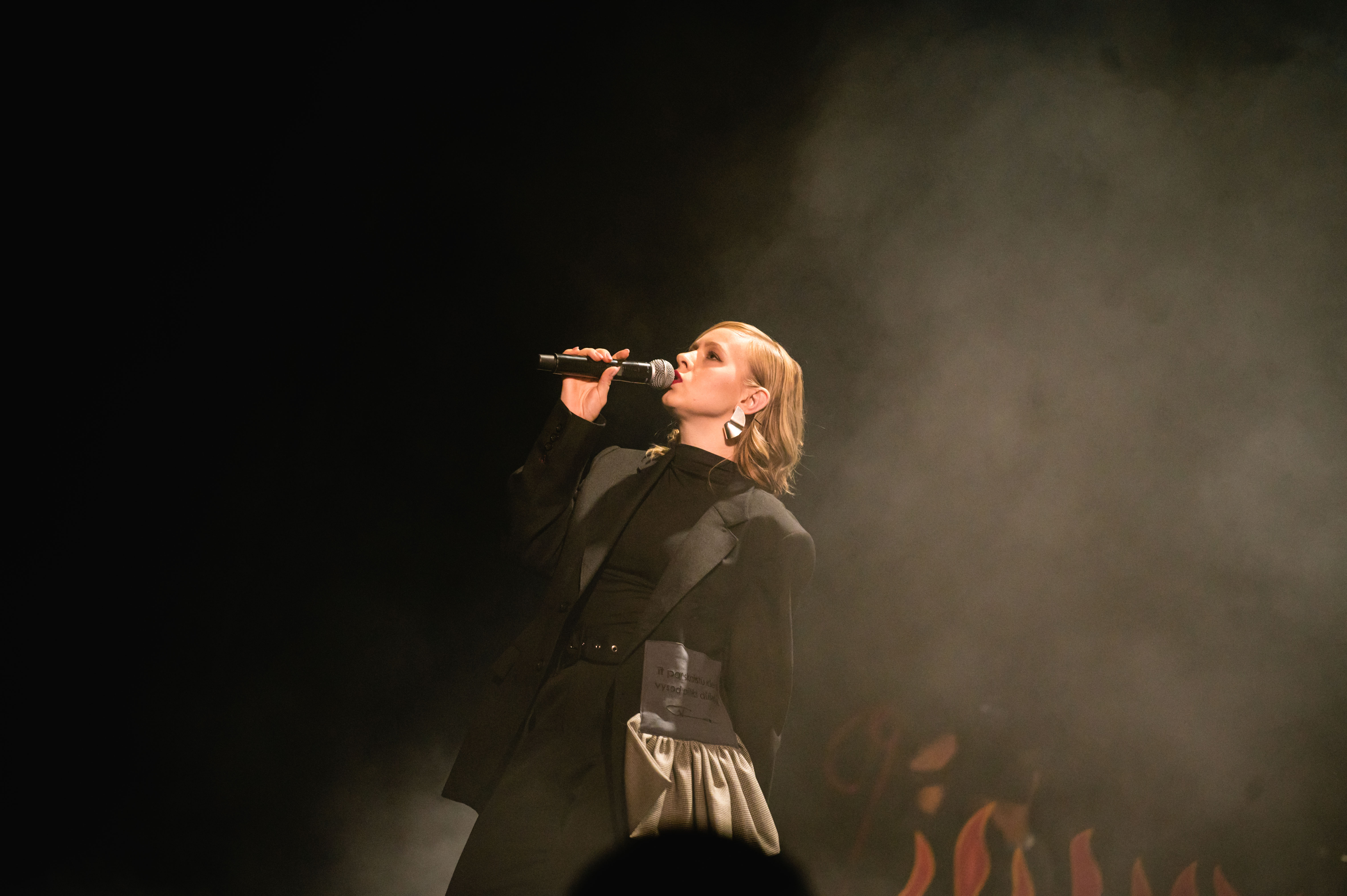
Saturday, 10th May
20:30
ŪGA & “juos īluos līluos”
Raibīs (Latvia)
Raibīs (the pseudonym of Oskars Orlovs, 1983) is a poet, writer, playwright, musician, and sometimes a cartoonist. He has written two short story collections, two plays, and the poetry collection “Pistacejis” (“Pistachios”), which won the 2017 Bonuks Award for Best Achievement in Latgalian Literature and was shortlisted for Best Poetry Collection at the 2018 Latvian Literature Award.
In 2020, he partook in the three Latgalian poets bilingual edition “Pādejais modeļs / The Last model”, translated by Jayde Will and published by Francis Boutle Publishers in London.
His poems are translated into Welsh, English, Polish and Frysk. He is also the author of the postcard set “Obrozi” (2021). Currently, he is drawing and creating the comics “Daugavpils Beavers” and working on his second poetry collection entitled “Vysi vuordi” (“All the Words”). In addition, he and his team are working on a book of Raibis’s poems for publication in Poland.
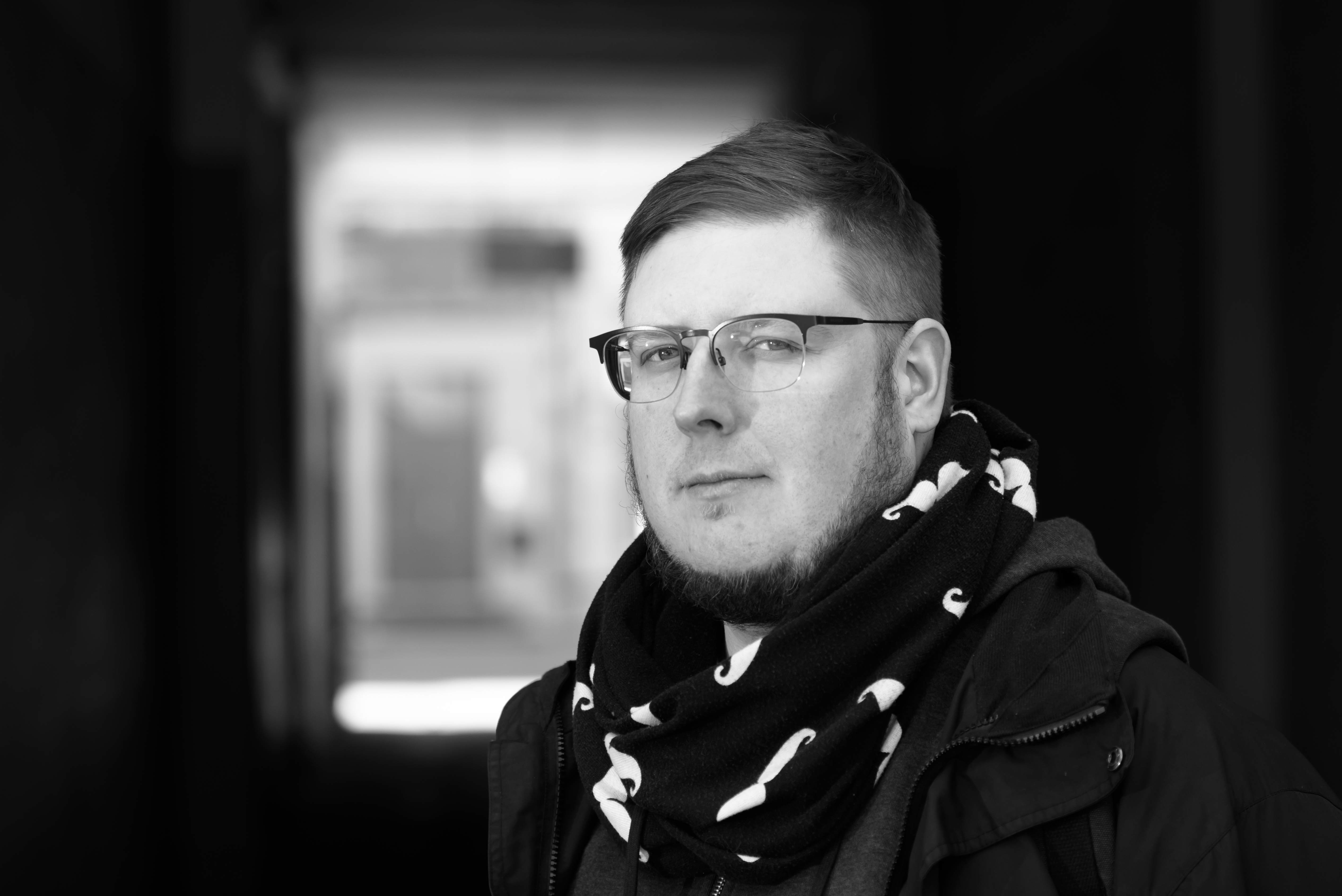
Saturday, 10th May
18:00
Latgalian-Võro-Seto-Kadrina poetry evening
Quigley Cryan Brockbank (UK)
Quigley Cryan Brockbank (Quigley CB) lives and works in Manchester and was the guest of Tartu City of Literature international residency program in autumn 2024. Brockbank has published a short story collection titled “God Leaks out of your Armpit” (2024); she has also had work published in Spellbinder magazine (2023) and written the play “Exiles”, which was nominated for the Shelagh Delaney New Writing Award. Brockbank’s work combines horror and elements from folk tales with an absurdist sense of humour. She frequently performs at spoken word events and literary festivals, including Crazy Tartu 2024, where audiences were captivated by her short stories and engaging performance style.
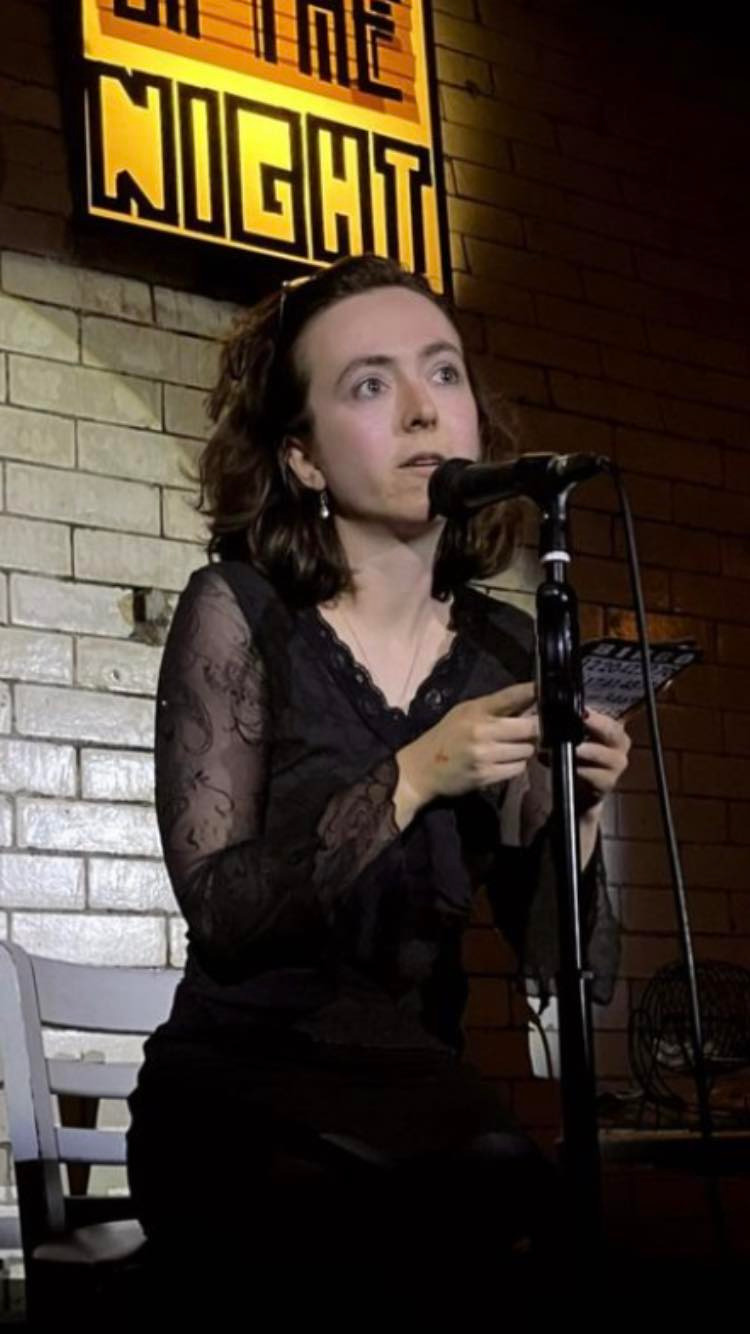
Friday, 9th May
13.00
“An Alternative Guide to Local Saints” – a walk with Quigley Cryan Brockbank
The walk is part of the project “Tartu Revisited” – Walks with Former Writers-in-Residence.
See also: https://kirjandusfestival.tartu.ee/en/tartu-revisited-walks-with-former-writers-in-residence/
Penny Boxall (UK)
Penny Boxall is a poet, children’s writer, and a Royal Literary Fund Fellow who is interested in the poetry of museums, and how we shape stories from objects. A graduate of the MA in Creative Writing from UEA (Norwich), she won the 2016 Edwin Morgan Poetry Award (Scotland’s largest poetry prize) with her debut collection, Ship of the Line. Her fourth poetry book, The Curiosities, was published in 2024. She was 2023-4 writer-in-residence at the University of Oxford’s Wytham Woods and (in 2019) Visiting Research Fellow in the Creative Arts at Merton College, Oxford. She has held residencies in the UK, Denmark, Switzerland, Estonia, Poland, Iceland, Norway and Latvia. Her debut novel for children, Letty and the Mystery of the Golden Thread, is published by Puffin, and was Blackwell’s Book of the Month. She has collaborated with artists Naoko Matsubara and Sally Dod, writer Marja Pärtna, composers Liis Ring and Jane Boxall, and filmmaker Bevis Bowden.
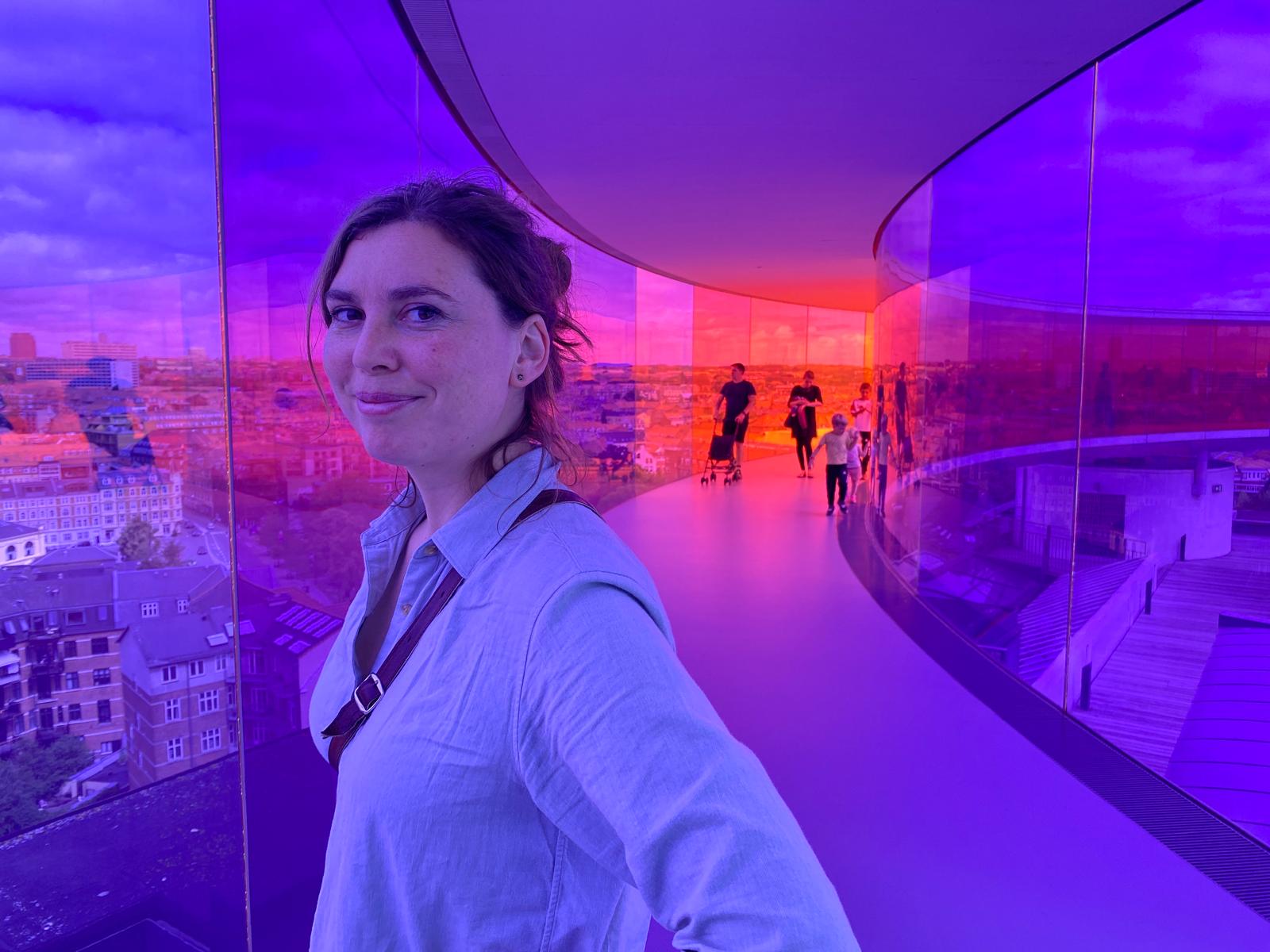
Thursday, 8th May
21.00
A Short History of the Nightingale – a walk to Emajõe Beach with Penny Boxall (UK)
Markus Thielemann (Germany)
Markus Thielemann (b. 1992) lives in Hanover but grew up in a village in Lower Saxony. He studied geography, philosophy, and creative writing, and in 2021 published his debut novel “Zwischen den Kiefern” (“Among the Pines”). Thielemann’s second novel, “Von Norden rollt ein Donner” (“Thunder Rolls from the North”, 2024), was shortlisted for the German Book Prize, placing it among the six most notable German-language novels of the year. The publishing house Eesti Raamat is publishing the Estonian translation by Piret Pääsuke.
With “Thunder Rolls from the North”, Thielemann places the Lüneburg Heath in northern Germany on the literary map. The Lüneburg Heath is Germany’s first nature reserve and is today a well-known tourist destination, evoking images of an idyllic heathland grazed by a flock of sheep. In the novel, Thielemann gradually deconstructs this idyllic image, revealing the complex and contradictory nature of the place’s identity, where idyll and violence coexist. The Heath is home to a Rheinmetall factory, weapons industry and NATO training grounds, and during the Second World War, it was the site of a subcamp of the Bergen-Belsen concentration camp.
The protagonist of the novel is Jannes, a 19-year-old shepherd whose family has made a living from sheep farming for several generations, although nowadays it is only possible through considerable effort, thanks to tourism. The story is set in motion by the news that wolves have appeared on the heath – a topical issue even in Estonia. In the novel, the wolf is not only a predator threatening sheep and a traditional way of life, arousing anxiety and aggression in people, but also a symbol of all that is foreign and unfamiliar. This anxiety also affects the young shepherd, merging with mythical and dreamlike visions rooted in a long-silenced family history.
Alongside the main plot, the novel, composed in richly poetic language, touches skilfully on themes such as resurgent nationalism, mental health issues, intergenerational understanding, and the questions of responsibility and freedom of choice faced by a young person.
“Thunder Rolls from the North” is a fine example of the “Anti-Heimatroman”, a form of regionally critical novel that emerged in the German-speaking world after the Second World War, as a counterpoint to the traditional Heimatroman, which celebrated rural life or the beauty of the mountains in contrast to urban life.
German Book Prize 2024 | Portrait Markus Thielemann | English
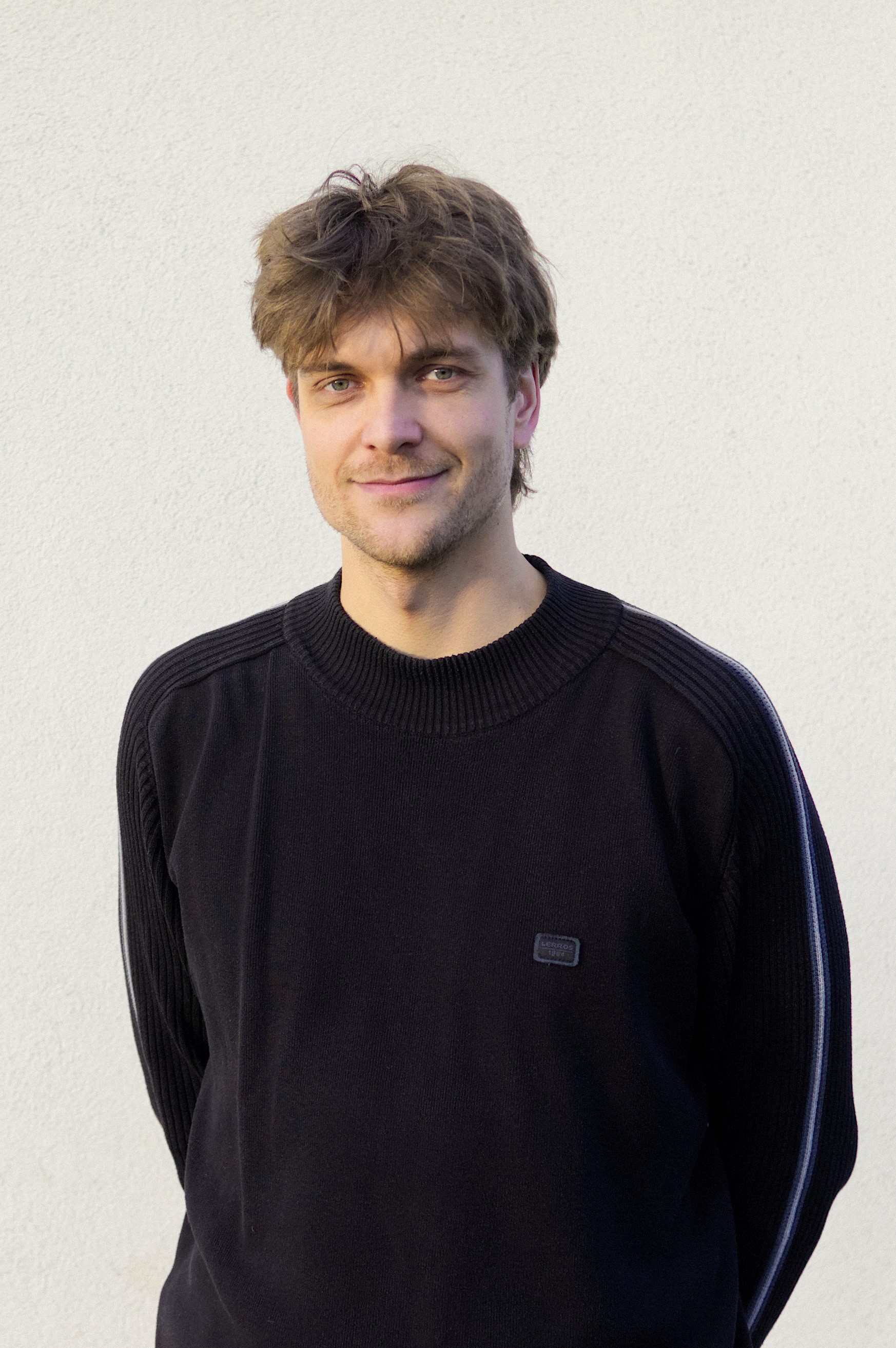
Wednesday, 7th May
16:00
Evening with German writer Markus Thielemann
Marius Marcinkevičius (Lithuania)
ANNOUNCEMENT: Unfortunately Marius Marcinkevičius is ill and cannot come to Tartu, but the event will take place and illustrator Lina Itagaki will be present.
Marius Marcinkevičius (1966) is now a writer. He has published 25 books since 2016, many of which are based on real history, and many of them have received awards in Lithuania and abroad. He is in the Honour List of IBBY. The author does not shy away from complex and socially significant topics, such as the partisan freedom struggle in Lithuania after World War II, the Holocaust, autism spectrum disorder, and the problems of children with oncological diseases. His books are translated into over 26 languages.
Three of his books have been translated into Estonian: “Võlujärv” (2020), “Supermemmed” (2023) and “Sõprus elevandi londil” (2024).
In 1995, Marius received a medical doctor’s degree from Vilnius University in Lithuania and worked as a doctor in hospitals and private clinics. In 2022, he, together with writer Lina Itagaki, created a publishing house, “Misteris Pinkmanas”.
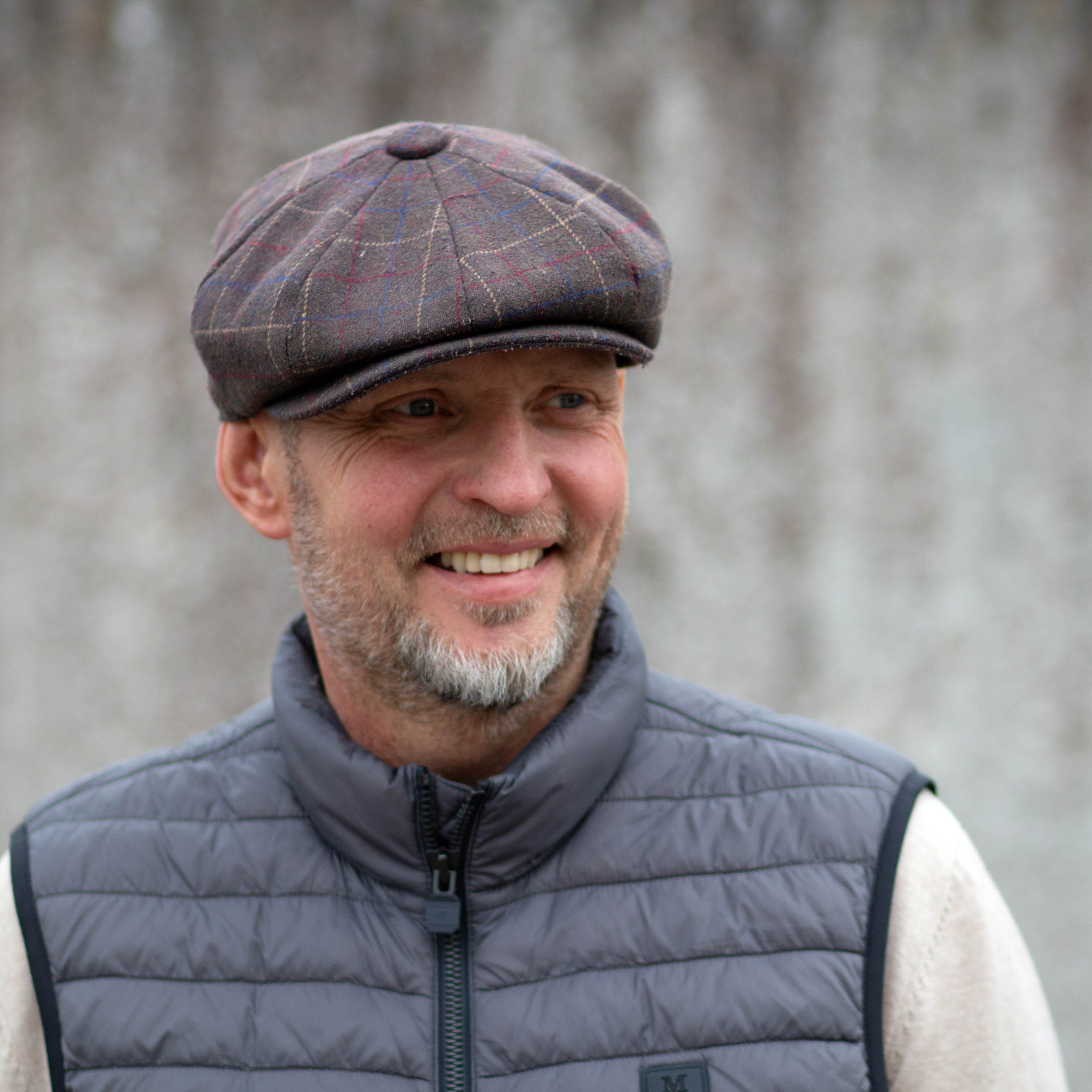
Wednesday, 7th May
12:00
Meeting with Marius Marcinkevičius (Lithuania) and Lina Itagaki (Lithuania)
Lina Itagaki (Lithuania)
Lina Itagaki (born 1979) is an illustrator, comics artist and publisher. She has illustrated 9 books since 2017. Six of them are based on real history, and eight books have received awards in Lithuania and abroad.
In Estonian Lina Itagaki has a book called “Siberi Haiku” (2022) together with Jurga Vilė.
In 2003, Lina received a bachelor’s degree in International Economy at the International Christian University in Japan and worked as a Japanese language translator and international company manager. Then she decided to learn how to draw and in 2014 received a bachelor’s degree of Graphic Art at Vilnius Academy of Arts. Her first illustrated book (“Siberian haiku”) was published in 2017. In 2022, she, together with writer Marius Marcinkevičiu,s created a publishing house “Misteris Pinkmanas”.
Find her in social media:

Wednesday, 7th May
12:00
Meeting with Marius Marcinkevičius (Lithuania) and Lina Itagaki (Lithuania)
Ligija Purinaša (Latvia)
Ligija Purinaša (1991) is a poet and journalist who writes in Latgalian and Latvian. She has published two collections of poems: “Sīvīte” (“Woman”, 2019), which was shortlisted in the Best Debut category at the Annual Latvian Literature Awards in 2020, and “Pierobežas” (“Borderlands”, 2022), which was longlisted in the Best Poetry Collection category at said awards in 2023.
In 2020, her poems were included in a bilingual Latgalian poetry anthology entitled The Last Model / Pādejais modeļs (Francis Boutle Publishers). Her poems have also been translated into German and Czech. Soon her third book will be published – a collection of prose in verse titled “The Magnificat” (2025).
She continues to work on her first novel about women and their relationship with the environment. Purinaša is interested in social history, women’s rights, and art as a means of inner freedom.
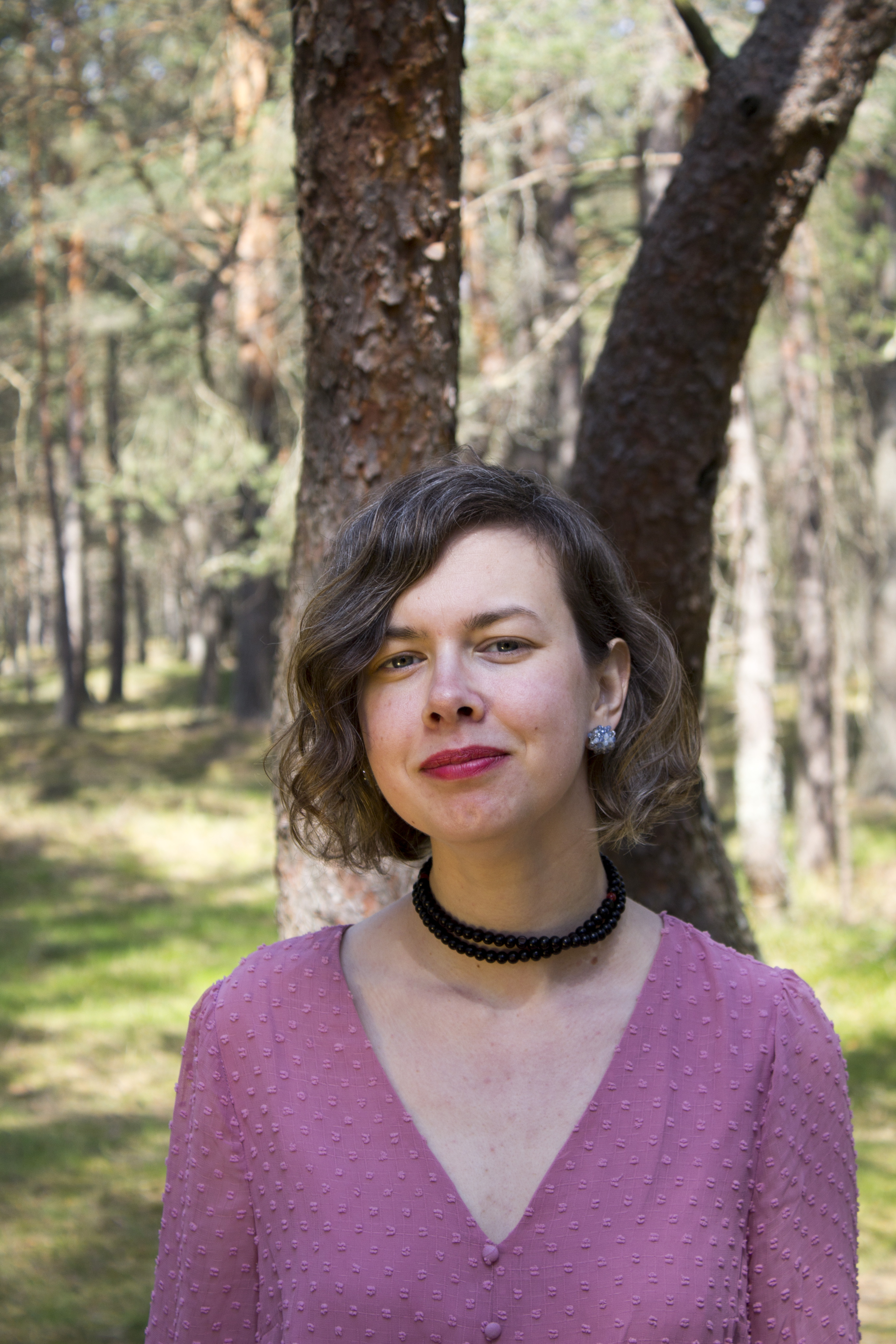
Saturday, 10th May
18:00
Latgalian-Võro-Seto-Kadrina poetry evening
Leonardo Padura (Cuba)
Leonardo Padura is a Cuban writer born in Havana in 1955. He is known as an independent intellectual who combines in his works a sense of popular culture with a scholar’s critical perspective on society, introducing existential, philosophical, and historical dimensions. Padura is currently the most internationally renowned and translated Cuban writer, having received numerous international awards. Although he also holds Spanish citizenship and travels the world promoting his work, he has, unlike many of his contemporaries, remained loyal to his homeland, making him one of the very few writers who have stayed in Cuba.
The love for his homeland is undoubtedly one of the defining features of Padura’s work: his descriptions of Cuba, scarred by communist rhetoric and repression, and the decadent allure of Havana are undeniable charms in his books. “His anchor was so firmly in place that it wasn’t worth pondering; it was simply hopelessly fixed in his physiological need to belong somewhere,” he says through his fictional character Mario Conde.
Padura’s international fame has primarily come from his series of novels featuring the protagonist, Mario Conde, a police detective who represents a disillusioned generation of Cubans. The writer himself has described this series as a kind of chronicle of Cuban life: the ten books published over several decades provide a realistic portrayal of the changes Cuba has undergone since the late 1980s, when the economic crisis following the collapse of the Soviet Union loomed, up to the significant 2016 visit of Barack Obama to Cuba. The protagonist also looks back at his youth in the 1960s, a period marked by communist rhetoric that would be familiar to an Estonian reader.
Padura himself has called his novels “fake crime novels,” as he places greater emphasis on the atmosphere and the characters than on the murder mystery: “I have had a very conscious desire to use certain crime novel techniques to write novels that are existential, philosophical, historical, and above all, social in nature,” he affirms. In addition to the Conde series, Padura has written about the Cuban exile, Lev Trotsky’s assassin Ramón Mercader, as well as novellas and essays.
In Estonian, the first four books of the Mario Conde series, translated by Maarja Paesalu and published by Toledo, have been released. These novels, set in 1989, include “Laitmatu minevik” (“Havana Blue”), “Havanna tuuled” (“Havana Golds”), “Maskiball” (“Havana Red”), and “Sügismaastik” (“Havana Black”). The series, forming a full year cycle, is known as “Four Seasons” or “The Havana Quartet.”
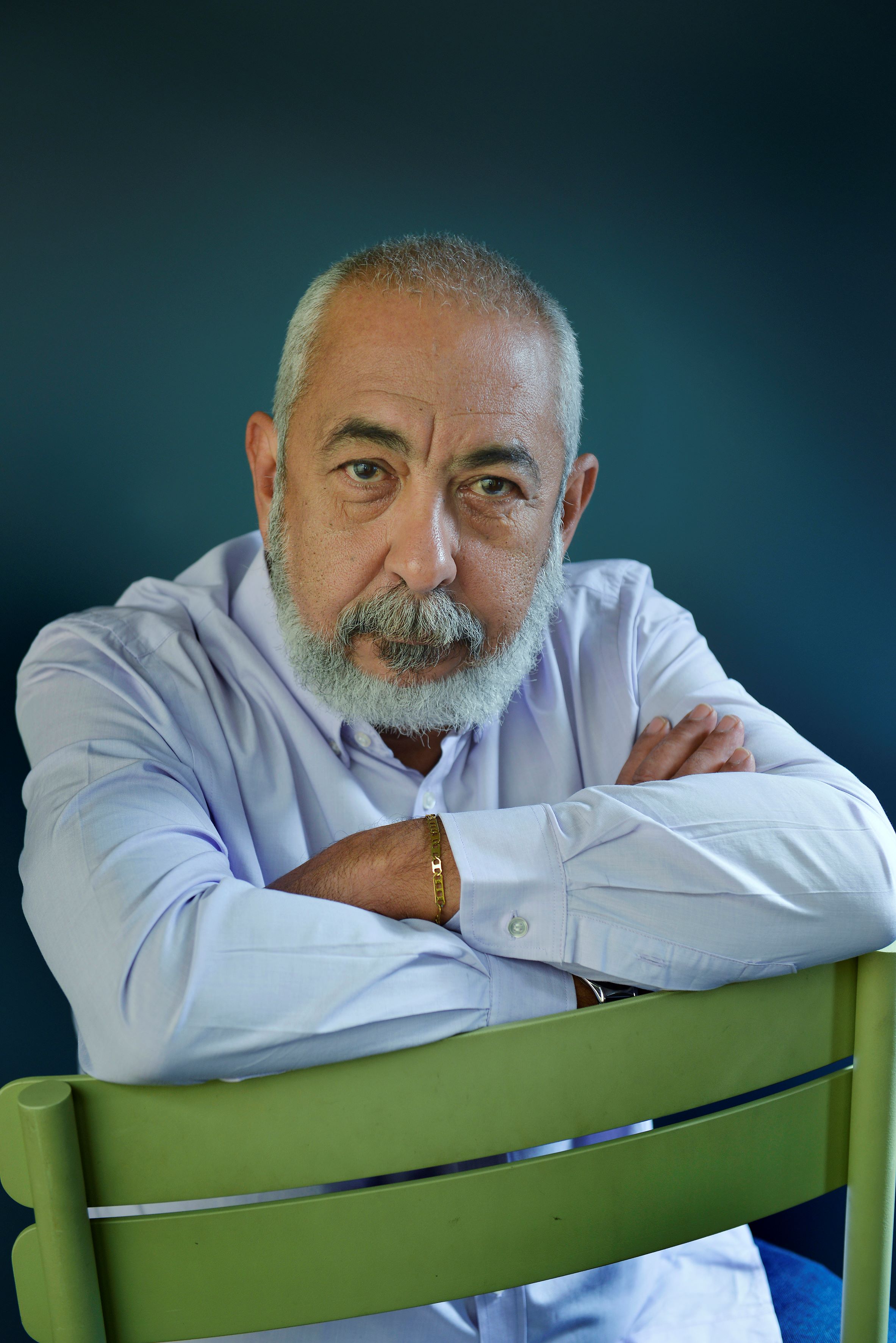
Wednesday, 7th May
18.00
Evening with Cuban writer Leonardo Padura
Kristina Sadauskienė (Lithuania)
Kristina Sadauskienė was one of the participants in the Tartu UNESCO City of Literature Nordic-Baltic Residency Programme, supported by the Nordic Culture Point. She was the inaugural guest of the programme, residing in Tartu at the end of 2023 and the beginning of 2024. Kristina works as a media and public relations specialist at the Klaipėda Drama Theatre and is also a tour guide and writer. She has published two city guides, one for Klaipėda and one for Biržai. Now back in Tartu, she is leading a tour that shares her unique perspective of the city. It should also be mentioned that it was one of her ideas that inspired the creation of the “Tartu Revisited” walking tours project featuring five walks with previous writers-in-residence.
Kristina Sadauskienė describes her tour “Tartu: rewritten” as follows:
“An hour-long walk through central Tartu. Starting point – near the Kassitoome. Ending point – not clarified. Despite the guide’s claim that everything is true, she is not to be completely trusted.
I got enfolded in Tartu of huge snow drifts, of deep silence, of white. Of unknown surfaces. There was mystery and comfort in the unknown world around me. And some-things (or some-ones) rustling in the house walls. I was an alien, someone without any relations, without knowledge about the place. So I just indulged. Without any history books or shame: What is this thing? Why is this thing? Where are the nice dudes? And where is the sea? Some great things revealed themselves during the two months. Some remained blissfully hidden. I share what picture and meaning I (re)constructed of Tartu while I’ve been here. I guess it clashes wildly with an official historical, geographical or geological truth of the town. To make it acceptable, we can always claim it is an exercise of imagination”
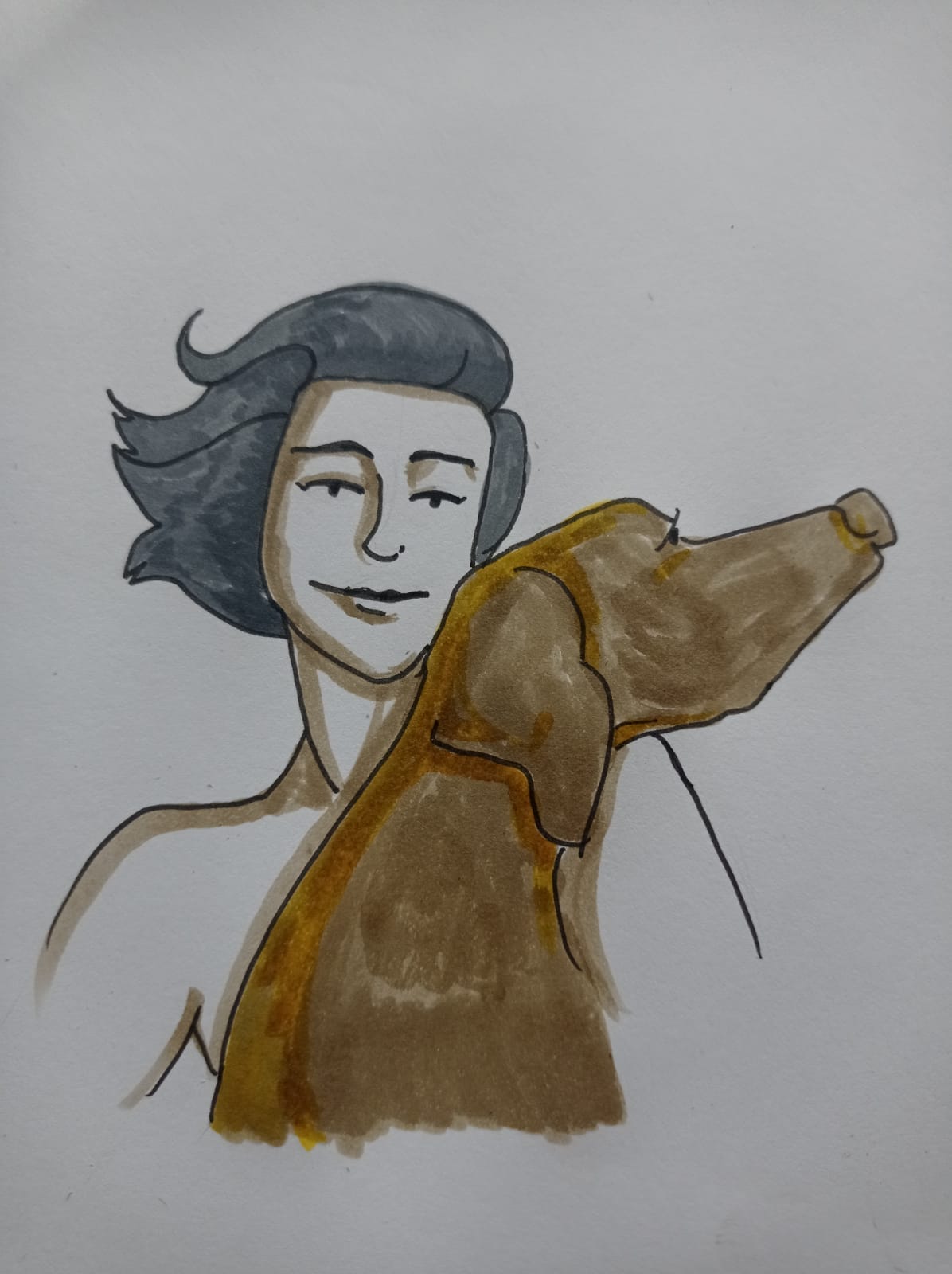
Friday, 9th May
16.30
“Tartu: Rewritten” – A Walk with Kristina Sadauskienė
The walk is part of the project “Tartu Revisited” – Walks with Former Writers-in-Residence.
See also: https://kirjandusfestival.tartu.ee/en/tartu-revisited-walks-with-former-writers-in-residence/
Klaus Modick (Germany)
The German writer and translator Klaus Modick (b. 1951, Oldenburg) has published numerous novels with a cultural-historical and biographical focus. He has written, for instance, about the friendship between Bertolt Brecht and Lion Feuchtwanger (Sunset, 2011), as well as the complex relationship between the poet Rainer Maria Rilke and the artist Heinrich Vogeler (“Konzert ohne Dichter”, 2015). The Rilke novel, “Concert Without a Poet”, became a true bestseller, warmly received by both critics and readers alike.
Klaus Modick will be speaking at Prima Vista primarily about his novel “Keyserling’s Secret” (“Keyserlings Geheimnis”, 2018), one of the settings of which is Tartu. This novel centres on the Baltic German writer and German literary impressionist Eduard von Keyserling (1855–1918). Born in Courland, Keyserling studied law at what was then the University of Dorpat between 1875 and 1877, and the closely guarded secret of his life is connected precisely to the years he spent in Tartu. The novel, which is culturally tied to Estonia, has been published in Anne Arold’s translation by Eesti Raamat.
In addition to artist novels, Modick, who has also published historical and family sagas, can most succinctly be described as offering refined, intelligent entertainment reminiscent of Anglo-Saxon literature. Despite its apparent lightness, his work meets many of the criteria demanded by more discerning literary tastes. Modick’s novels are well-structured, multilayered, evocative, and rich in detail.
Readers familiar with Keyserling’s oeuvre will recognise the style and atmosphere of Eduard von Keyserling’s works in Modick’s novel. The author himself has stated that he sought to write the novel as Keyserling himself might have done.
Klaus Modick’s novel could well serve as an invitation to explore the classic writer’s own works. In Estonian, Keyserling’s books “Twilight”, “Waves”, “Sultry Days”, and “The Man of God” have been published.
Klaus Modick’s essay “The Void: On the Way to Eduard von Keyserling” was published in 2020 in the April issue of Akadeemia, translated by Anne Arold. In August 2024, Akadeemia also published an interview with the author conducted by Eve Pormeister.
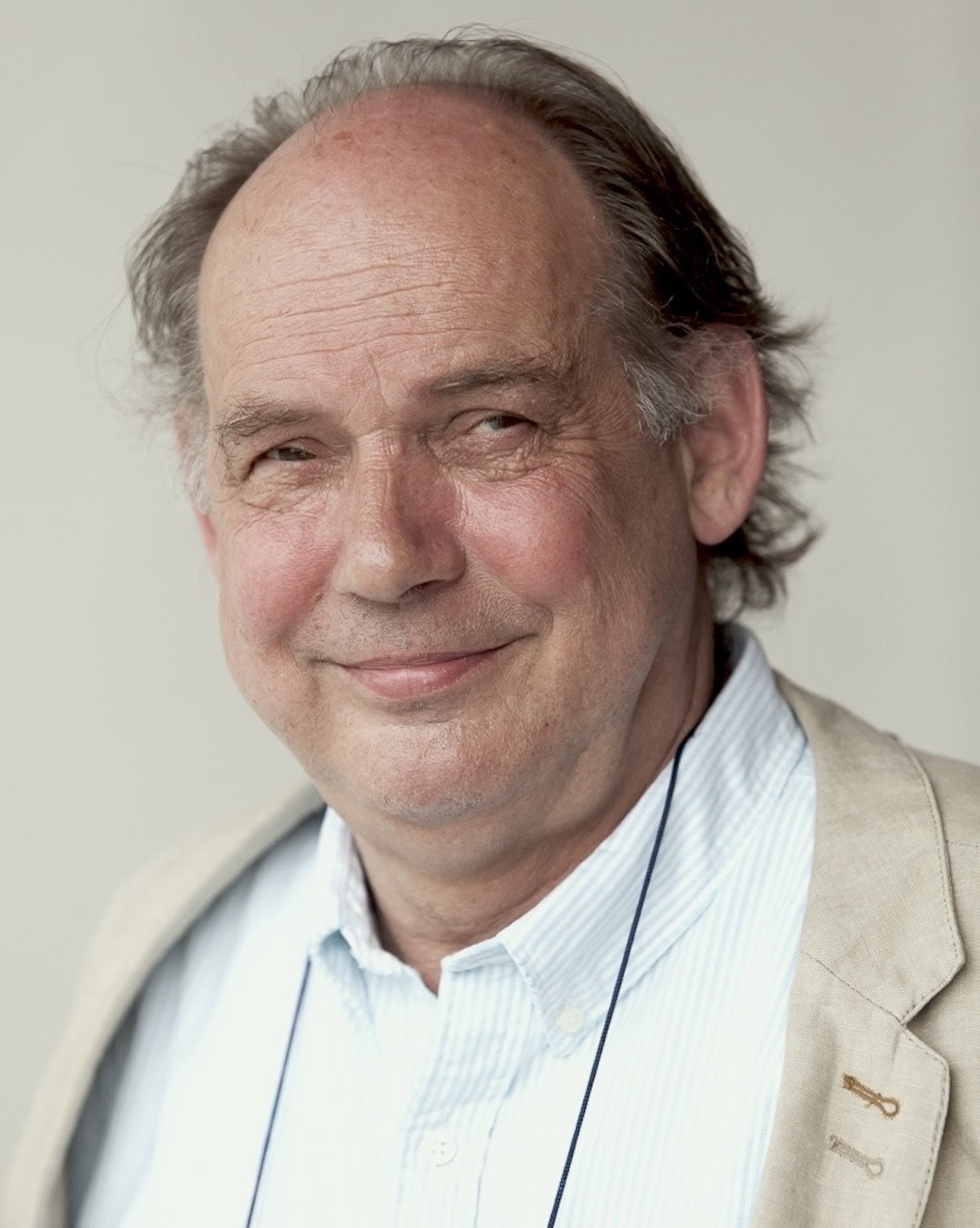
Monday, May 5th
18:00
An Evening with German Writer Klaus Modick
Klaske Havik (Netherlands)
Klaske Havik is Professor of Methods of Analysis and Imagination at Delft University of Technology. Her book Urban Literacy. Reading and Writing Architecture (2014) relates architectural and urban questions, such as the use, experience and imagination of place, to literary language. She edited Writingplace, Investigations in Architecture and Literature (2016), and initiated the Writingplace journal and the European research network Writing Urban Places. Havik’s literary work appeared in Dutch literary magazines; her poetry collection Way and Further appeared in English in 2021. In 2022, she received an honorary doctorate from Tampere University, Finland, in recognition of her contribution to the study of
architectural writing. Klaske Havik has been visiting Estonia regularly since 1998. She lectured at the Estonian Art Academy in Tallinn and was part of its thesis board. She also wrote for architecture journals Maja and Ehituskunst.
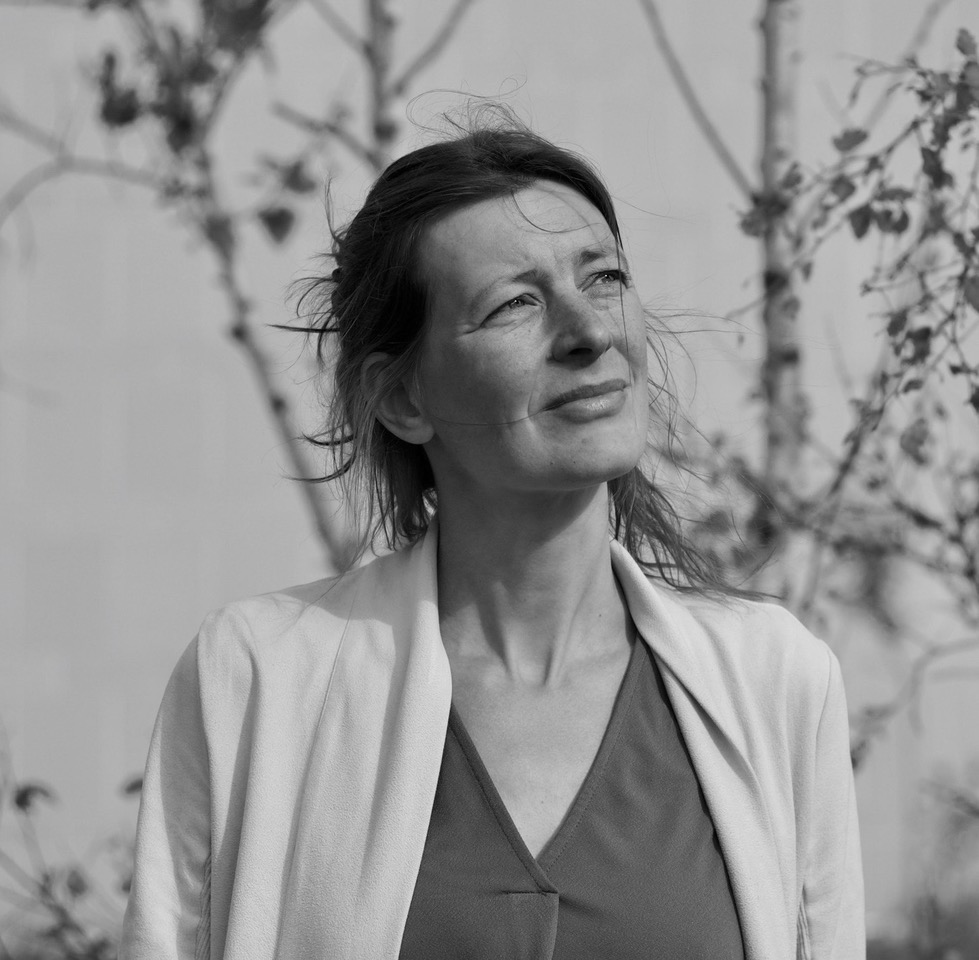
Monday, May 5th
19:30
Lecture, discussion and poetry evening with Klaske Havik (Netherlands)
Julia von Lucadou (Germany)
Julia von Lucadou was born in 1982 in Heidelberg and studied creative writing at the Swiss Literary Institute and media dramaturgy in Mainz. She has worked as an assistant director and television editor. Her debut novel “Die Hochhausspringerin” (“The High-Rise Diver”) was nominated for the Swiss Book Prize in 2018 and won the Swiss Literature Prize in 2019. In the novel, she paints a picture of a society focused on perfection and optimal performance, exploring themes of surveillance and care. An excerpt from the novel, along with an afterword by Jaak Tomberg, was published in the March 2024 issue of Akadeemia magazine. The excerpt was translated from German into Estonian by Anne Arold.
In her 2022 novel “Tick Tack”, Lucadou critically examines several contemporary phenomena from the perspective of the social media generation, addressing “filter bubbles” and the radicalisation of young people online. In 2023, a theatre production was created based on the novel.
Julia von Lucadou was a guest at the 2024 Prima Vista festival and was selected as the first resident for the new Goethe Institute literary residency programme this year. Her project stood out among the applications for its focus on the themes of misunderstanding and miscommunication.
The literary residency in Tartu is a collaborative project between the Goethe Institute in Tallinn, the Tartu German Cultural Institute, the Prima Vista literature festival, and the three UNESCO Cities of Literature, as part of the celebrations for the Estonian Book Year. The programme aims to encourage literary research and cultural exchange between the UNESCO Cities of Literature Heidelberg, Bremen, and Tartu.
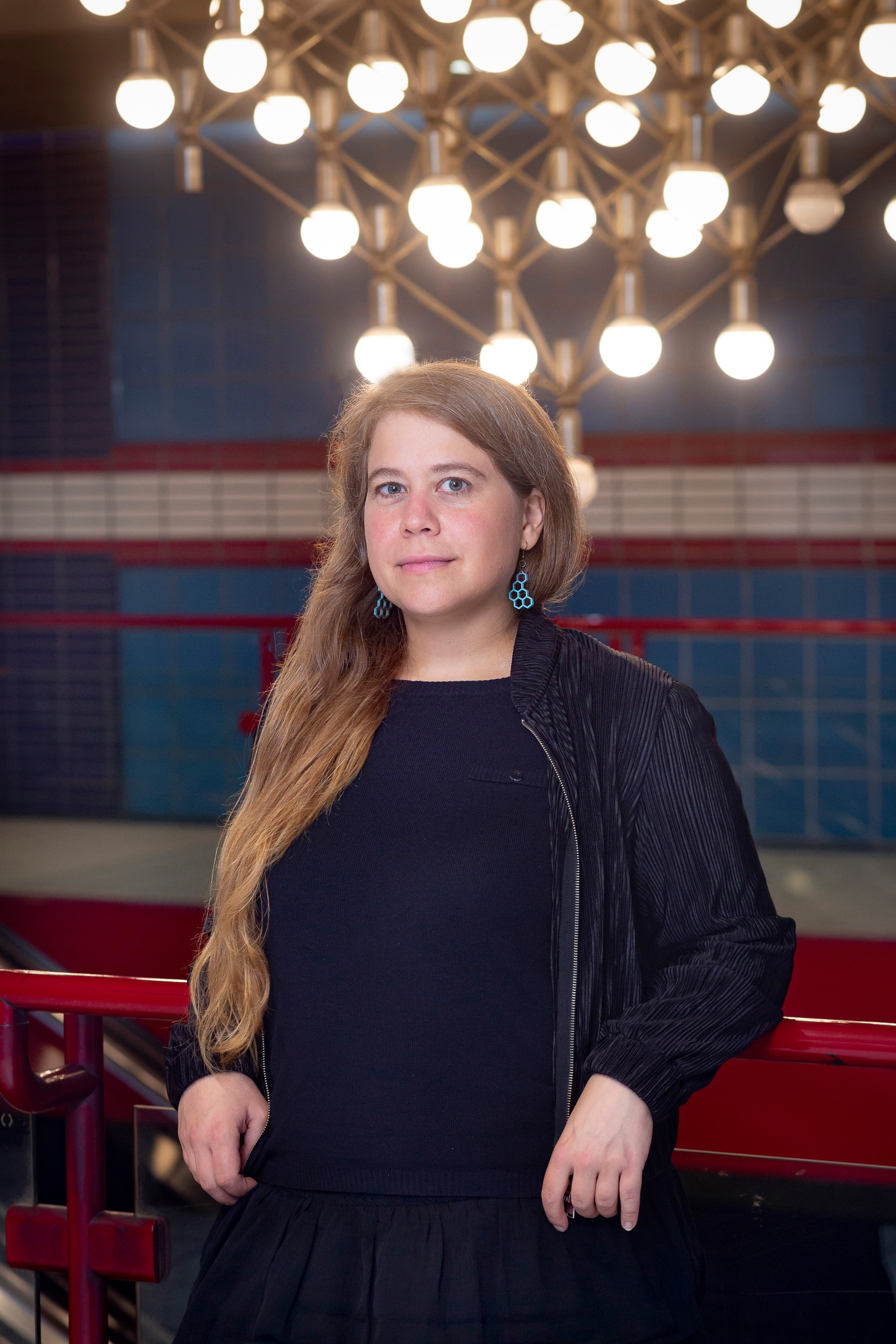
Thursday, 8th May
19.30
“The Most Important Street in the World” – A Spring Evening Discussion with Julia von Lucadou and Ernesto Salazar-Jiménez, moderated by Kai Aareleid
Ernesto Salazar-Jiménez (Germany)
Ernesto Salazar-Jiménez, born in Caracas, Venezuela, has lived in Germany for over 20 years. He has a strong interest in art, nature, foreign languages, and education. As a writer, his main themes are loneliness and cultural exchange. Since 2016, he has been a member of the Blaumeier Atelier writing group and has participated in numerous workshops and readings organised by the Bremer Literaturkontor and the Bremen literary scene.
His short stories have been published in various anthologies, including „Grenzen“ (Blaumeier, 2018), „So nimmt man das Leben mit“ (Sujet Verlag, 2019), „Blaumeier oder der Möglichkeitssinn“ (Blaumeier, 2020), „Das grüne Ding“ (Blaumeier, 2021), and „Keine Zeit“ (Blaumeier, 2024). A selection of his texts is also featured in MiniLit Nr. 14 by the Bremer Literaturkontor. He is also the author of „The Roads that Lead to Edinburgh” (Literaturmagazin Bremen, 2024), written on behalf of the City of Bremen to celebrate the 20th anniversary of Edinburgh as a UNESCO City of Literature.
Loneliness has been Salazar-Jiménez’s constant companion and his truest source of inspiration as a writer. In his stories, which often feature solitary beings in barren surroundings, he reflects on childhood memories, the lives of others, and encounters with insects. Through his readings, such as „Die Leichtigkeit der Einsamkeit” and „Aber bestellen wollte ich einen Ponyhof”, he invites the audience to engage in a profound and culturally enriching experience.
See also: https://www.literaturmagazin-bremen.de/beitraege/the-roads-that-lead-to-edinburgh

Thursday, 8th May
19.30
“The Most Important Street in the World” – A Spring Evening Discussion with Julia von Lucadou and Ernesto Salazar-Jiménez, moderated by Kai Aareleid
Friday, 9th May
20.00
Cinema Theatre Tartu Elektriteater presents: “City of God” (Brazil, France, USA, 2002; directors: Fernando Meirelles and Kátia Lund)
David Hartley (UK)
David Hartley is a writer of strange stories based in Manchester, UK. At Prima Vista 2024, he collaborated with performance artist Henri Hütt to create “The Forest of Ink & Skin”, an immersive folklore experience inside a woodland made of tattooed Estonians. Later the same year, he took “The Embassy of Utopia” to Manchester, a spoken word event which originated at Prima Vista 2023, where over 100 Mancunians spoke about their visions for a better future. Hartley is the author of three collections of short stories, including “Spiderseed” (Sleepy House Press), “Incorcisms” (Arachne Press), and “Fauna” (Fly on the Wall Press). His latest book is the self-made limited edition zine Sprites of Svenshögen, which reflects on his time as a Writer-in-Residence in a converted train station in rural Sweden. He is excited to be returning to Tartu to lead a pilgrimage through Karlova to meet an important hedgehog. Along the way, new mythologies will be discovered, Good Thoughts will be encouraged, and new stories will spring to life. In the meantime, he can be found at @DHartleyWriter on Instagram.
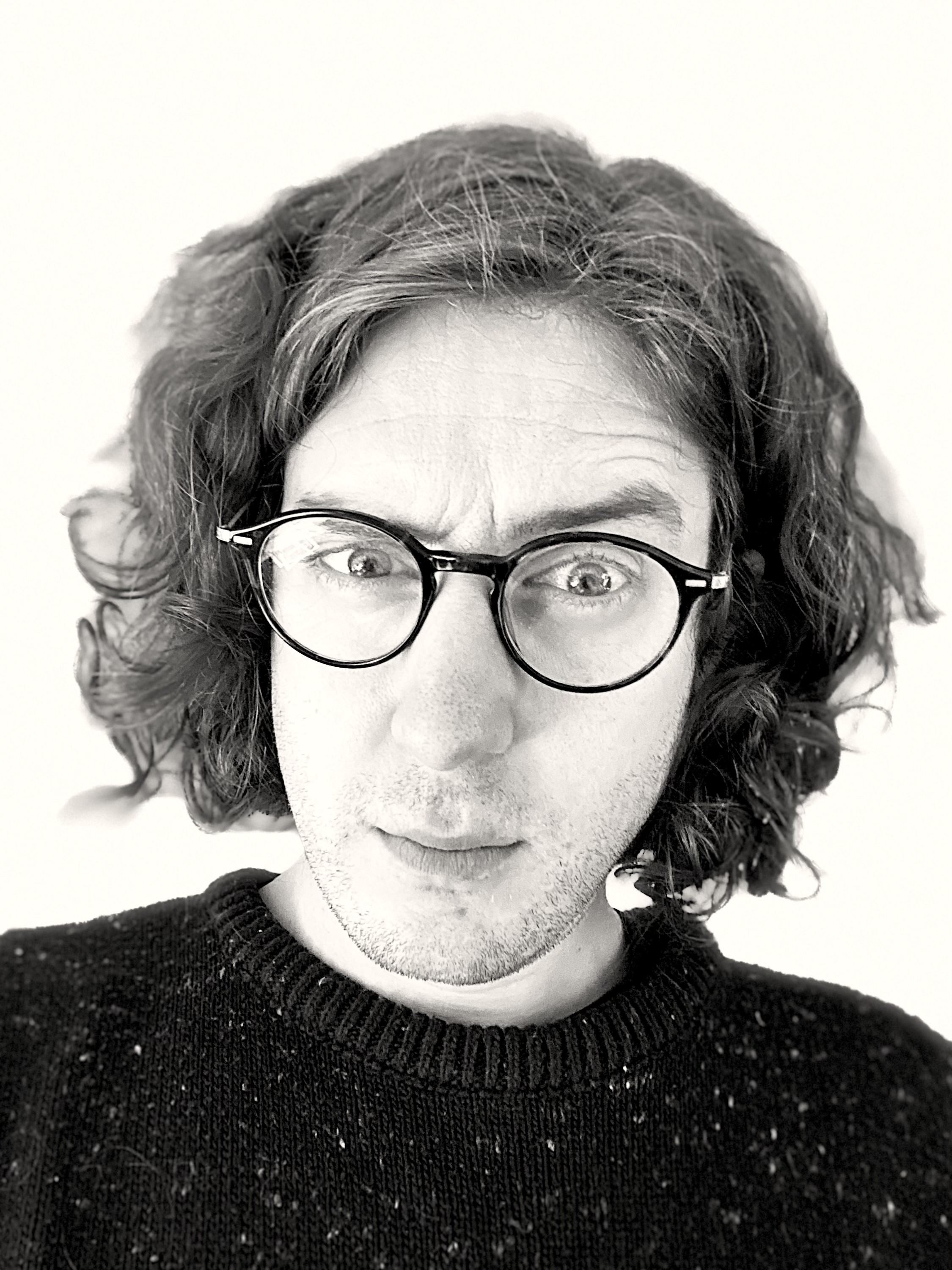
Saturday, 10th May
13.00
Pilgrimage to the Hedgehog with David Hartley
The walk is part of the project “Tartu Revisited” – Walks with Former Writers-in-Residence.
See also: https://kirjandusfestival.tartu.ee/en/tartu-revisited-walks-with-former-writers-in-residence/
Daina Tabūna (Latvia)
Daina Tabūna (1985) is a Latvian writer. She graduated from the Latvian Academy of Culture with a degree in Theatre, Film, and TV Drama. Since 2000, her prose and articles have been published in various cultural media outlets.
Her short story collection “Pirmā reize” (“The First Time”), a contemporary coming-of-age book, was shortlisted for the Annual Latvian Literature Award 2015 as the best debut of the year. Tabūna’s stories have also been published in the UK under the title “The Secret Box” and translated into Lithuanian, Slovenian, German, and Chinese.
In 2022, her children’s story “Lasis Stasis un Atlantijas okeāns” (“Salmon Sammy and the Ocean”) was published. It was included in the reading list of the Children, Youth and Parents’ Jury organised by the National Library of Latvia and nominated for the Jānis Baltvilks Award in children’s and youth literature. In 2024, the book was adapted for a performance at the Latvian Puppet Theatre.
In 2023, her first novel, “Raganas” (“Witches”) was published. It was nominated for the European Union Prize for Literature 2024 and for the Annual Latvian Literature Award 2024 as the best prose book. The novel has been translated into Estonian and Serbian.

Friday, 9th May
18.30
Meeting with Latvian Author Daina Tabūna
Anita Mileika (Latvia)
Anita Mileika (1987) is a poet who writes in Latvian and Latgalian. Mileika’s first collection of poems, The Eternally Poor Doe (“Mūžīgā nepārtikusī stirna”, Latgolys Studentu Centrs, 2015), which included poems in Latvian and Latgalian, made waves among Latvian and Latgalian readers—it was shortlisted for the 2015 Annual Latvian Literature Award for Best Debut and received the 2015 Boņuks Award for Best Achievement in Latgalian Literature.
Anita says about herself: I like lifting heavy weights, so I go to the gym every day. I have six cats and two books of poems.
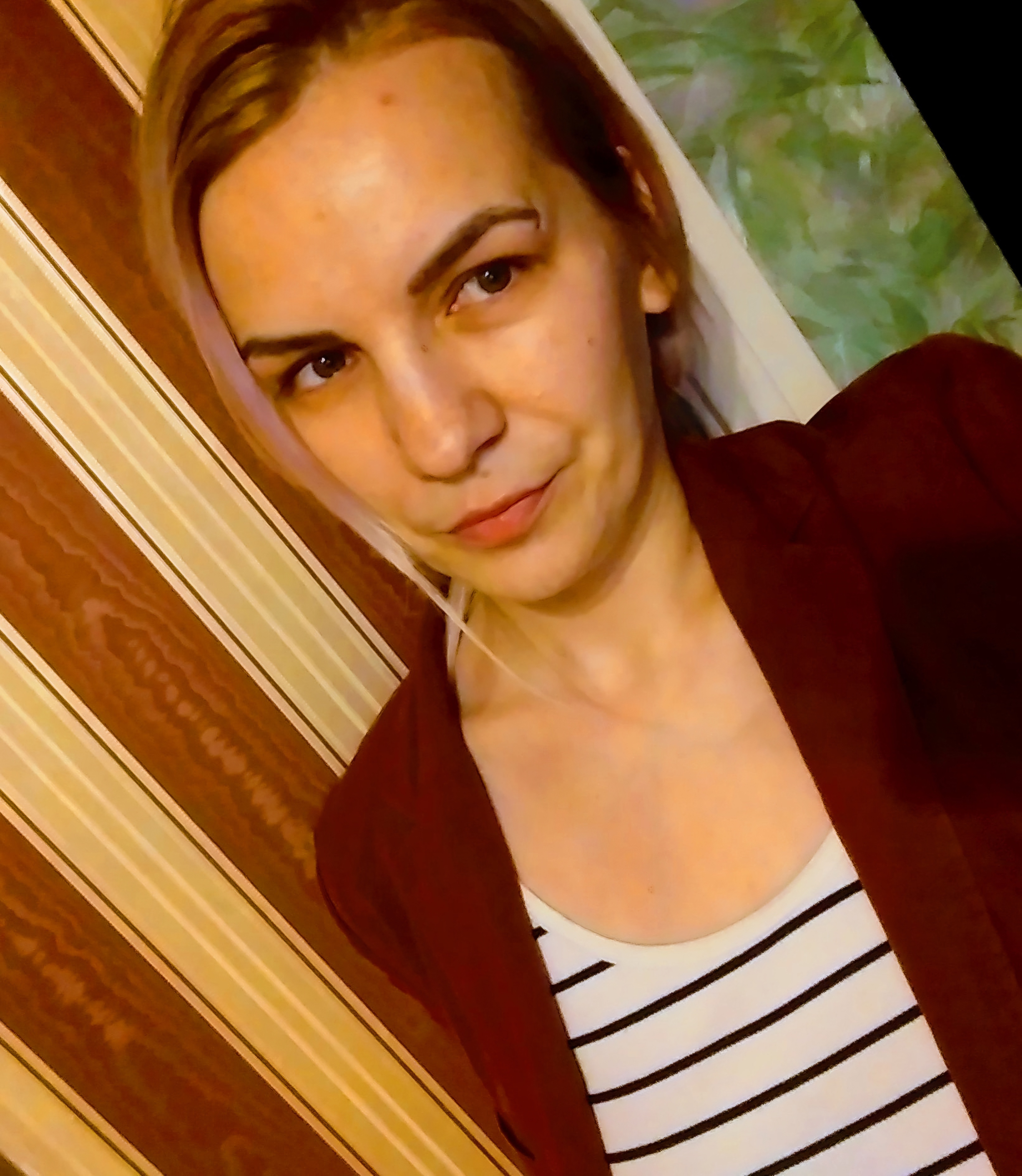
Saturday, 10th May
18:00